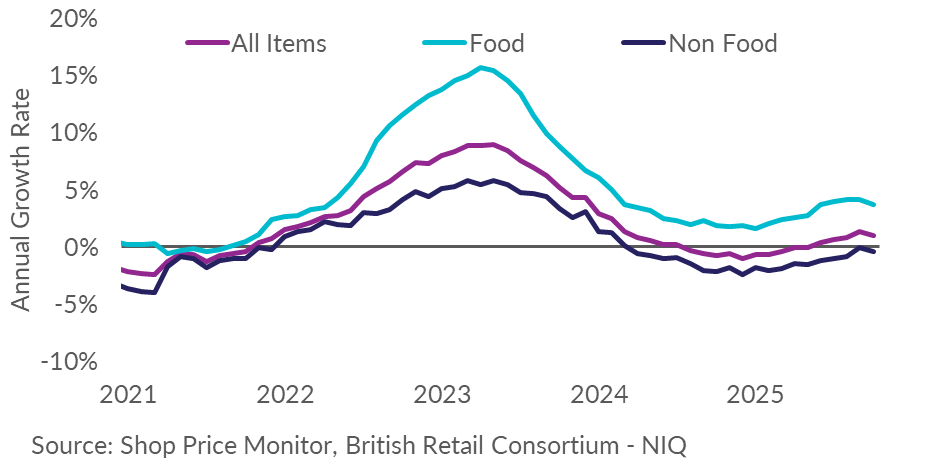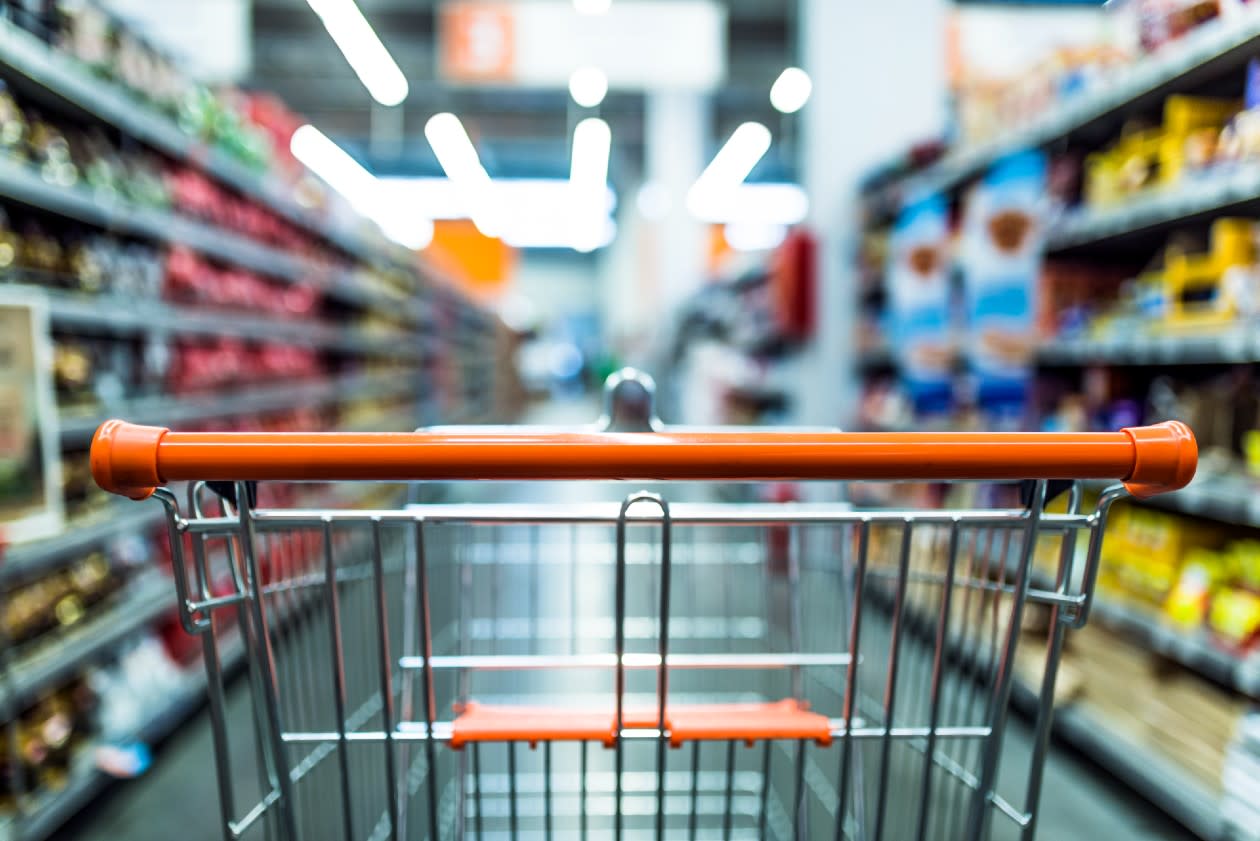Shop price inflation slowed in October despite fresh food now costing 4.3% more than it did a year ago, latest industry figures show.
Overall shop prices were 1% higher than a year ago this month, down from 1.4% in September, according to the British Retail Consortium (BRC) and market researchers NIQ.
Overall food inflation fell to 3.7% from September’s 4.2% as easing global sugar prices helped to bring down the cost of chocolate and confectionery just ahead of Halloween.
However fresh food prices continued to soar, reaching 4.3% higher than last October against growth of 4.1% in September.
In some good news for consumers, prices of items other than food are now 0.4% lower than a year ago, down from September’s deflation of 0.1%, as retailers brought in early bargains ahead of the Black Friday sales event.
BRC chief executive Helen Dickinson said: “Overall shop price inflation slowed in October, driven by fierce competition amongst retailers and widespread discounting.
“While food inflation remains high, especially for fresh food where prices continued to rise, it eased for ambient goods.
“Beyond food, discounts came early to electricals and health and beauty, as retailers started promotions ahead of Black Friday month.

Ms Dickinson added: “The IMF recently warned that UK inflation will be the highest in the G7. With the Budget less than a month away, the Chancellor has an opportunity to relieve some of the pressures that are keeping the cost of essentials high.
“Labour’s promised business rates reform must deliver a meaningful cut to retailers’ rates bills, and ensure that no store pays more.
“Rising employer National Insurance Contributions and a new packaging tax have directly contributed towards rising inflation, according to the Bank of England. Adding further taxes on retail businesses would inevitably keep inflation higher for longer.”
Mike Watkins, head of retailer and business insight at NIQ, said: “Inflation is higher than a year ago, and with pressure on household budgets and weak sentiment, retail spend continues to be subdued.
“However, food retailers are in a battle for market share, and many are offering targeted price cuts, and non-food retailers will wish to avoid any price increases over the next couple of months.”
This article was written by PA Consumer Affairs Correspondent and Josie Clarke from Press Association and was legally licensed through the DiveMarketplace by Industry Dive. Please direct all licensing questions to legal@industrydive.com.

